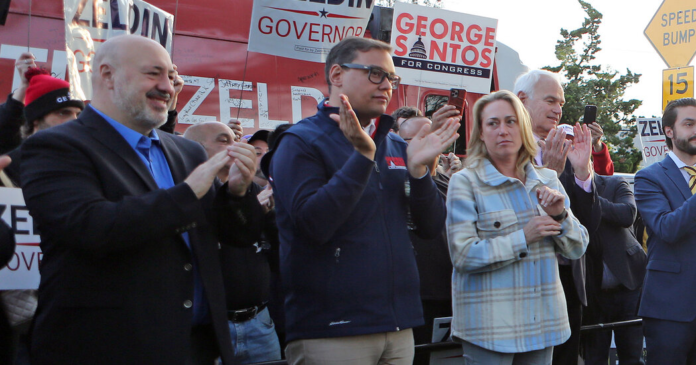Mr. Santos’s campaign filings show other irregularities as well: He had listed a flood of expenses under $200 — more than 800 items in total — a number that far exceeded those of candidates for similar office. More than 30 of those payments came in just below the limit at $199.99, expenses listed for office supplies, restaurants and Ubers, among other things. While F.E.C. rules urge candidates to try to save receipts for purchases below $200, they are required to keep them for all expenditures above that threshold.
Paul S. Ryan, an election law expert, said that the expenditures could be an effort to hide illegal use of campaign funds, given the leeway with reporting receipts below $200. If so, he said, Mr. Santos’s attempt to hide the pattern could put him in further legal trouble, adding: “I consider deployment of this tactic strong evidence that the violation of law was knowing and willful — and therefore meeting the requirement for criminal prosecution.”
Unusually for a candidate who was relatively new to politics, Mr. Santos also appears to have used his campaign accounts to fund trips across the country, along with local hotel stays, according to a review of his campaign expenditures by The Times.
Over the course of his campaign, Mr. Santos spent $30,000 on hotels, $40,000 on airfare and $14,000 on car services — and campaign records suggest he also retained a campaign vehicle.
The spending was funded by a campaign war chest of more than $3 million amassed by four fund-raising committees during the 2022 campaign cycle. The money came from small-dollar donors, longtime Republican contributors on Long Island and elsewhere and the campaign committees of other Republican candidates. The biggest givers lavished Mr. Santos with the maximum allowable amounts, in some cases directly, in others via a Republican super PAC or the National Republican Congressional Campaign Committee.
A hefty chunk of the total came in the form of a $700,000 loan from Mr. Santos himself.
The source of Mr. Santos’s wealth has been surrounded by some mystery: He has said on financial disclosure statements that his company, the Devolder Organization, is worth more than a million dollars; the statements also show that he earned millions between salary and dividends over the past two years. But the disclosures do not name any of the clients who helped Mr. Santos earn such a fortune — an omission that could pose legal problems for Mr. Santos, campaign finance experts say.
Two former aides, who requested to remain anonymous because they didn’t want to be publicly associated with Mr. Santos, described growing concern during the campaign that the candidate was too focused on spending money frivolously and not focused enough on the nuts and bolts of the winning the election.




